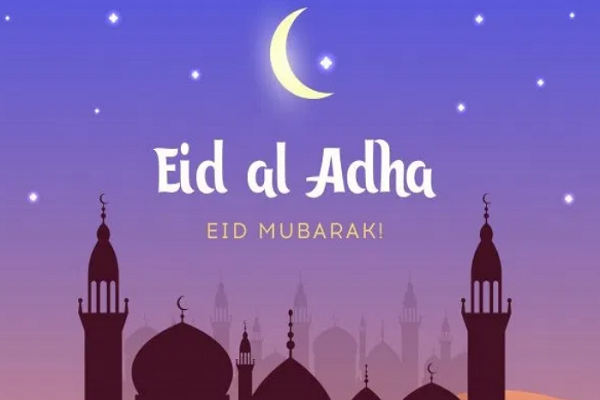When Will Be Eid Al-Adha This Year?

It falls on the 10th day of Dhu Al Hijjah, which is the 12th and final month in the Islamic calendar.
The exact date is not yet known but it is likely to start either on Thursday, July 30, or Friday, July 31. The date can be worked out once the month of Dhu Al Hijjah begins but it will be officially determined by local authorities.
What is Eid Al Adha?
Al Adha means the sacrifice. The specific sacrifice this holiday is named after is explained in the Quran, which tells of how Prophet Ibrahim (AS) dreamt that God asked him to sacrifice his son, Ismail, as a test of his faith.
At first, Ibrahim dismissed the dream but it reoccurred several nights in a row. The prophet is said to have grappled with the decision but ultimately chose to submit to God's will as an indication of his commitment to faith.
The devil tried to dissuade him, telling him not to kill his son, but Ibrahim responded by throwing rocks at him. This act is now repeated by pilgrims at Hajj who throw stones at symbolic pillars.
Just before Ibrahim went to carry out God's command, God replaced his son with a lamb or a goat and told him to sacrifice the animal instead. Now Muslims celebrate Eid by feasting on a lamb or a goat.
Eid Al Adha will fall on the final days of July, but the exact date is yet to be determined.
Ibrahim Al Jarwan, a Sharjah-based member of the Arab Union for Astronomy and Space Sciences, said he expects Dhu Al Hijjah to begin on July 22. As Eid Al Adha falls on the 10th day of that month, this will correspond with July 31.
New months are declared after the crescent moon is officially sighted.
“The crescent of Dhu Al Hijjah 1441 will be born on Monday, July 20, at 9.33pm after sunset, and it will be seen on Tuesday evening,"Al Jarwan told Emarat Al Youm.
"Wednesday, July 22, will mark the beginning of Dhu Al Hijjah and Friday, July 31, will be the first day of Eid Al Adha, according to astronomical calculations."
However, if the crescent moon is sighted on Monday night and Dhu Al Hijjah begins on Tuesday, Eid will instead fall on July 30.
The final decision rests with the UAE government based on consultation with local Islamic authorities, who monitor the moon cycle to determine the beginning and end of months in the Hijri calendar.
How is it celebrated and how might things be different this year?
Eid is a time when families and friends come together to celebrate, usually over a meal.
The day begins with early Eid prayers at a mosque and it is customary for a family to have a goat or sheep butchered at an abattoir. The meat is typically shared between themselves, their relatives and the underprivileged.
Families and friends visit each other and wear new clothes. Eidieh - a gift of money during Eid - is given to children and sweets are served.
This year, because of the coronavirus outbreak, traditions will likely be put on hold. Family gatherings will be restricted to limit the spread of COVID-19.
During Eid Al Fitr, authorities advised against sharing food and giving children cash.
It is unclear if places of worship will be open by the end of July but Eid prayers may be encouraged to be carried out at home instead.
Source: The National, UAE



